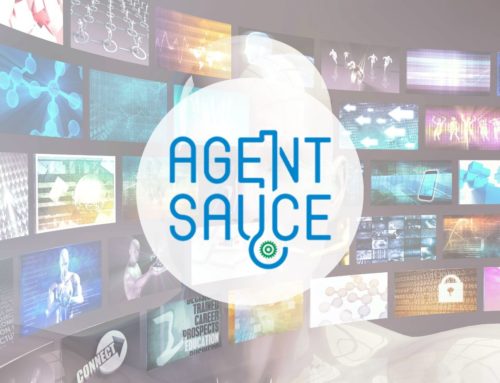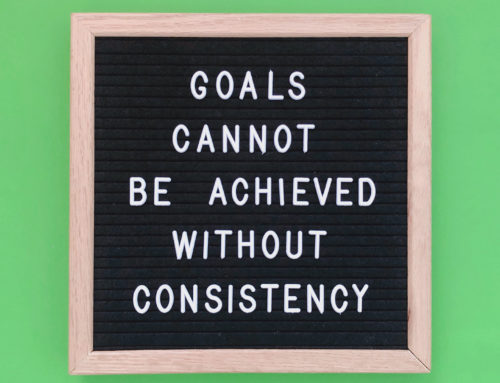How will Real Estate Technology affect Real Estate Agents in the Future
Doug recently returned from Dell EMC world in Las Vegas, and was eager to talk about all of the cutting edge technology and how it affects the future of real estate technology.
Take Aways for Future of Real Estate Technology
- Giant Leap Forward – Real Estate Technology is on the edge of another phase that will be another giant leap forward like what happened when the Internet first became readily available.
- Machine Learning and Artificial Intelligence – Greater capability in these areas will enable more tailored and specific search results and Real Estate Technology interactions.
- Internet of Things – The interconnection of devices and everyday use things to improve service or personalize will be a major part of real estate technology in the future.
Future of Real Estate Technology Show Notes
- Conference Concept [00:45]
- Leap Forward in Real Estate Technology [2:30]
- Machine Learning and Artificial Intelligence [4:45]
- Internet of Things [8:29]
- Effect on Jobs and Productivity [12:00]
- Augmented and Virtual Reality [14:25]
- Focus more on customer less on real estate technology [19:00]
- Autonomous World [21:00]
Future of Real Estate Technology Transcription
Adam Small: Hi there, Adam Small here with Agent Sauce, and this is the Real Estate Marketing Podcast. With me today is Doug Karr of DK New Media.
Douglas Karr: How are you sir?
Adam Small: Doing well and you?
Douglas Karr: Fantastic.
Adam Small: On our last podcast we talked about maybe doing something along the lines of the future of Real Estate Marketing, Real Estate Technology that sort of thing, and you just got back from a conference out in Las Vegas with Dell right?
Douglas Karr: Yes, I was at Dell EMC World.
Adam Small: Okay so, tell us a little but about what the general concept of the conference was and what you saw.
Douglas Karr: Well, I think the first thing is for people that don’t realize Dell actually owns a bunch of different companies. They own Dell, of course, which is our laptops and then servers that are in data centers and everything. And then they have EMC, which is a storage specialty company.
Adam Small: Right, they bought them up a few years back.
Douglas Karr: Yeah, and then they have a security company, Secure Works. They have Pivotal, which is a development company, rapid development company. And so if you could look across the spectrum of technology they kind of hit every single thing out there.
Adam Small: In relation to IT World, you know information technology infrastructure, as well as services around the infrastructure right?
Douglas Karr: And they were a public company, now they’re private again.
Adam Small: Right, they went private … didn’t Michael Dell buy it back?
Douglas Karr: Yeah, and so they’re growing like crazy and they don’t have to … they can focus on technology instead of focusing on shareholders and stuff. So it’s providing them a level of freedom that is really exciting. I mean, some of the stuff they are working on there, you know they developed special servers with Intel to map DNA.
Adam Small: Right so, servers geared just for the one purpose of mapping the DNA and genomes.
Douglas Karr: And some of the headway on that is like, some of the computations would take like 22 hours before now take like, two minutes. I think the message today to everybody, we’re not going to talk specifically about … we can talk a little bit about specific to Real Estate Technology and what’s happening out there, but for the most part is technology as a whole. We’re heading into another phase of accelerated technology advancement.
Adam Small: Right, I recall you talking about, you know, one point there was a massive leap forward when we hit the internet.
Douglas Karr: Right.
Adam Small: There was this huge boom, and businesses started being able to reach out beyond just their local town, and their local area just because of the free access of the internet. So, it created a boom in businesses. A whole new business model, eCommerce, and all that stuff right? And it’s kind of leveled off a little bit and so far as where that is, but then you were talking about, you know we’re about to make another giant leap forward.
Douglas Karr: Yeah and so for you know, real estate agents out there you remember that right? If you didn’t make the move from let’s say print to digital and online, you got left behind. And so people that were savvier in social media, and search, and digital, and real estate email marketing, and mobile, and Real Estate Technology they wound up taking your business from you. And so, we have another phase that’s really coming into effect and some of it, we don’t even know how fast we’re going to be moving, but I’ll talk a little bit about it. One is as you’re sitting there, I don’t want to go over people’s heads, but when you work on a laptop let’s say. When you boot up a laptop, what’s literally happening is the operating system is loading things into memory for you to run the display and interact with the computer. And then when you say file save, it’s saving that back to a hard drive. Well, that’s going to go away in the next few years. We have what’s called “persistent flash memory” and literally you won’t have that back and forth. Your computer won’t boot up, you’ll just open the lid and it’ll be on.
Your phone’s are the same way. If you unplug it, and plug it back in, it’ll be exactly where it left off. And so, that’s a huge, huge boom to the real estate technology industry because, it’s less memory, less computing, less CPU needed, and so these systems are just going to be extremely fast. And that makes way for things like, machine learning and artificial intelligence. Where, now we can actually teach computers to develop their own algorithms and develop their own patters for deciding things.
Adam Small: So like, that may be useful in a search mechanism right?
Douglas Karr: Yeah.
Adam Small: This particular family has been looking at, or say this computer, this terminal whatever, has been looking at homes that are in this price range, this many bedrooms, this many bathrooms, this size yard, that sort of thing and without being told specifically that, that’s exactly what this person is looking for, can look at the history of that and kind of analyze. And you can do some of that now, but you know, it maybe able to pick up on greater nuances of, oh they really don’t want a pool, even though some of the houses had pools, they really don’t want one, they may have a dog because, they’re looking at a certain sized yard, and make some inferences based on that sort of thing right?
Douglas Karr: Right now we hit all those filters right? Pool on, pool off. And in the future it would be that as you continue seeing spending more and more time on some pictures than others, the system will know. The system will know, well that one had a pool in it so, let’s keep showing them more ones with pools. That four bedroom, they like the four bedroom over the three bedroom and you’re not actually interacting, it’s just [crosstalk 00:06:12]
Adam Small: It’s picking up on queues. It’s learning from your activity and behaviors.
Douglas Karr: So these real estate technology systems are going to be so fast … that’s one big thing, artificial intelligence. A lot of people always talk about robots when they [crosstalk 00:06:27]
Adam Small: Terminator! I’ll be back.
Douglas Karr: But that’s not really where the fascinating stuff is. The fascinating stuff is in artificial intelligence and that’s, that system is going to be able to predict when to send emails and when to … I know you’re messing with this stuff too, its already out there. And so it’s just really fascinating that, right now everything is interruptive and we try to predict when people read the news letter and everything else. In the future there will be so many queues and everything that literally the systems can send it at the right time.
Adam Small: It’s gonna say, “Hey, this email going to Adam. The best time to reach him is at nine PM on a Wednesday night. So, I’m going to send it then.”
Douglas Karr: And he never clicks through on that content so don’t show that content anymore to him.
Adam Small: Right, but do show it over here to Kimberly because, she really likes that content.
Douglas Karr: Right. And today to program something like that is millions of dollars, but just like programming [crosstalk 00:07:28]
Adam Small: Well, and it’s slower too right? Because, the computational power required to process through all of the rules, and all that stuff just takes a long time to get there.
Douglas Karr: But it’s just like real estate mobile virtual tours five years ago would cost you $50,000 right? Now it’s, you know [crosstalk 00:07:47]
Adam Small: It’s a standard now, you know if your tour is not mobile optimized then people are like, “Oh okay, I’m going to move on and look at something else because, it’s no good.” It’s expected these days right?
Douglas Karr: So, okay so, the acceleration of the ability to harness so much power in these computers is one piece. Artificial intelligence is obviously with that because, it really frees up the ability to learn natural language processing, understanding speech, all of those pieces are accelerating. Then the other piece that’s happening at the same time is, you might have heard the term, “IOT” or, internet of things. And internet of things is basically, that everything we have is starting to talk.
Adam Small: Well it’s connected right?
Douglas Karr: Yeah it connected to the internet, but we’ve only just begun. Like, if you going into your car lets say, your car might have 200 different sensors, all of them speak to, if you have On Star. All of them are sending information back to the company to the cloud.
Adam Small: To the CIA.
Douglas Karr: Yeah and those guys. And so a car is a perfect example. Now, IOT, they predict isn’t something that something is all of a sudden going to explode in growth, but what’s happening is we’re already seeing an acceleration in that. Now, where it gets amazing is, you might 5 years from now walk into a restaurant and when you sit down at the seat, that’s when they bring your menus out because, they were alerted that someone sat in a seat. They bring your beer out to you, at the table, and when your beer is down to the last sixth of the glass, the glass alerts them that it’s time to refill it. And so some of the stuff that they’re even testing now. Like they described they were in Israel, they were testing with cows. They have computers in cows, that are testing their blood stream and nutrition. And they are altering the feed based on the coagulation of the milk so that they can make cows basically produce better milk, that produces better cheese.
Adam Small: So they are optimizing the cow’s milk for cheese versus another optimization might be for better tasting milk when you want to drink it right?
Douglas Karr: Yeah. Now, when you think about that it sounds crazy, but then you start thinking about well are they on the North side of the field, facing the sun? Or the South side of the field and what impact does the weather have with that? So every cow’s geographic location is also a part of it. What they’re eating at that section is. How long they’re staying outside. How much exercise they’re getting. You start looking at this, and you’ve got a herd of cows that’s terabytes of data.
Adam Small: For each cow almost.
Douglas Karr: Yeah. That’s going through the system, but it’s happening.
Adam Small: And it’s effective. It’s increasing yield and creating better tasting cheeses.
Douglas Karr: And that’s the trick. So, a lot of people always get scared of this, where’s this going?
Adam Small: Kind of like a Gattaca sort of thing, I don’t know if you recall the Gattaca movie, but every child was engineered essentially right? And if you were born naturally then you were going to have whatever defects you may have and so you had a lot harder time accelerating in that environment.
Douglas Karr: And we’re going to have some similar issues. They do believe the problem that they’re seeing is that part of humanity will have a more difficult time adopting to that technology. We’re lucky enough to live in a first world country where we adopt it and there is no problem, but one of the things I want to say about that is, one of the things they always talk about is, “Well it’s going to take jobs, it’s going to do this, it’s going to do that, and you just pointed to the big impact.” The big impact is, efficiency and price.
Adam Small: Right.
Douglas Karr: So the fact is, cheese could cost half the amount, if …
Adam Small: Because, the yield is twice as much.
Douglas Karr: Exactly. And so, there’s a side to this that people often don’t pay attention. They always look at the nightmare scenario of, this is going to take everyone’s jobs, everything’s going to be automated, but they don’t look at if Mcdonalds was all robotics and everything else, the price of a Big Mac might drop to 29 cents.
Adam Small: Right. Well you’re not having to pay for the labor and all that. So I saw this the other day, and basically, we’ve only really only lost one job in the last 100 years or so due to technological innovations. And that was the elevator operator. Every other job is still there if you look at the government listing of jobs right? All of the jobs are still there. They’ve morphed some, adjusted some, but really and truly the only job that has been removed from that list of government jobs … you know when you do your taxes right? Is literally the elevator operator. So, innovation …
Douglas Karr: I’m trying to think how long ago … cause blacksmiths had to be, but they’re still out there.
Adam Small: Right.
Douglas Karr: It’s not totally lost.
Adam Small: A lot of that though is just a changed job, it’s not necessarily a lost job.
Douglas Karr: So, the next economy, everything could be actually, talking 10 years, 20 years ahead, everything could be so inexpensive that you really don’t have a poverty class because, … and even now, when you look at the United States, the average person in poverty has a refrigerator, air conditioning, television, and internet. That’s our poverty. And so how did that come around? Well, it happened with technological advancements that a 42 inch TV now costs 99 dollars. Where it used to cost 8000 dollars five years ago.
And so it’s really interesting, now for specific to real estate technology, it really does kind of open up some incredible opportunities. I saw an article that some of the large mansions out West had drone tours. And so the drone is pre programmed to basically do a tour of the house. And you in a remote location can activate the drone and do a tour of the house. Whoa!
Adam Small: Yeah it’s incredible.
Douglas Karr: With augmented reality.
Adam Small: Augmented reality, I think that’s more of a … Would that be augmented or virtual?
Douglas Karr: It would be virtual. If you’re totally immersed it’s virtual.
Adam Small: Right, right. But even augmented reality is another avenue entirely as well. You know when you walk into a place one thing I’d really love to see would be, you walk into a place and you can look at your phone and it would say, it would have highlighting pieces of the room. If that’s a stone fireplace that’s been there for 150 year or whatever something really unique about it, the marble is from Italy and that sort of stuff. You could literally walk through a place yourself and have that explained to you.
Douglas Karr: And that’s where this internet of things and computing power accelerates everything in real estate technology. Let’s say your water heater is broken. You put on your glasses and it dials up, it dials into the A track repair, home repair service. And the home repair service basically analyzes it and shows you what’s wrong and might even show you how to fix it yourself. And you’re seeing how you’re going to fix it in the glasses as your fixing it.
Adam Small: Have you seen the commercial on TV, with IBM’s Watson? The elevator repair man shows up to repair elevator three and the guys like, “There’s nothing wrong with elevator three.”
Douglas Karr: And they’re already testing that. They already have elevators now that are … in fact there is a twitter account where you can watch the elevators talking.
Adam Small: Oh yeah? That’s crazy I’ll have to have a look at that. But you know its predictive right? We know in the mean time between failures for these things is this, and then we’ve got sensors that are connected here and they’re telling us, “Oh you know what? This is weakening, there’s a problem here, the voltage is off. What ever it may be, so we need to get somebody out there now so that we don’t have an issue later.”
Douglas Karr: And for real estate agents, I would say, this is going to transform your lives too right? Today we do a text message when we’re standing out front of the thing, but the scene of tomorrow might be that someone walks up to the door and knocks on the door, there’s a IOT device that identifies that it’s a prospect. Your face comes up on your real estate agent [crosstalk 00:17:18]
Adam Small: You could do a remote tour with the prospect without ever leaving the office.
Douglas Karr: Exactly you could unlock the door, you could … and the conversation might start through AI so it’s not even really you talking, it’s someone questioning that person, looking up their data, seeing if they’re possibly a qualified buyer, doing all of that without you [crosstalk 00:17:45] ever showing up. And so I think these are things that, these aren’t dreams, these are things that are going to come to market within the next five to 10 years because, of this mass acceleration that we’re going to see.
Adam Small: Right. You know, it’s funny because, what comes to mind for me is that how using real estate technology actually shrinks the world right? And what I mean by that is, if you have the ability to do a remote tour with a group right? Then as long as your technology can reach that listing, it could be next door, or it could be all the way around the world right? And I’m not saying that necessarily that a real estate agent from Indianapolis might be able to sell a home in Florida per se, but they could reach out all the way across the state with real estate technoloy and without having to make a two and half, three hour drive right? And interact and answer questions about things right? [crosstalk 00:18:46]
Douglas Karr: It’s definitely going to change the way that we’re doing business nowadays. And you know the good thing for a real estate agent is if it’s going to allow you to focus on your customer more and more, and less and less on the real estate technology. And that’s the promise of it is. We’re at a state now where you know, your average real estate agent I’m sure is doing a ton of paperwork, data entry, and then in their spare time, showing houses. Well the promise of real estate technology is always that you can do less and less of that …
Adam Small: Well the promise is that it’s an enabler and unfortunately sometimes you run into a situation where it’s kind of a disabler because, it breaks or you don’t understand how it’s supposed to work, or you expect more of it than it’s designed to do right?
Douglas Karr: And so real estate agents should be spending more time networking, more time building relationships with their customers, and then the systems will enable that and accelerate it. So, that they’re always filling their time with what matters, and that’s the … there is even stuff now like AI bots that people are messing with. Where, someone might have a question, and the chats they’re still a little bit dumb right now, but someone asks you a question on your website and your website actually responds to them and its not you.
Adam Small: Well and those are growing now, they’re picking up, and you’re right some of them are a little bit dumb now, but in part that’s because the real estate technology that they use to feed the data to them isn’t as sophisticated as it needs to be.
Douglas Karr: But even that, you think about … [crosstalk 00:20:31]
Adam Small: But it’s getting there.
Douglas Karr: How many people visit your site every day, if you could say hi to every single one of them, and figure out whether a qualified lead or not would be awesome, but you just can’t do that today. But it’s coming around the corner.
Adam Small: It is, yeah. Okay, so what else did you see? What was probably the thing that was most amazing to you that you saw at Dell EMC?
Douglas Karr: The whole autonomous world we’re going to live in and that planes will fly themselves. Cars will drive themselves. That whole piece of it is pretty intriguing where, it’s safer. Human error is what drives most planes into the ground, not systems right?
Adam Small: Yeah, you’re really gonna trust the guy up front right?
Douglas Karr: But, but, you know humanity has to advance where you feel safe just getting into a plane where nobody flying.
Adam Small: And saying, “Yeah, okay plane take me home!” Right?
Douglas Karr: Or a car, you know, there’s that element of … and then there’s that cool scientific side that says, do they actually calculate if there’s going to be a five car pile up will your car kill you to save more people?
Adam Small: Oh, that’s Asimov’s Laws right? What’s the better benefit?
Douglas Karr: But even still, I think some of that stuff is again, quality of life is just going to drastically improve, not that we don’t already have it made, but just that this technology is going to reach a point where we have help making the right decisions, we have help with the work that we don’t like doing, we have systems that are always on. When you plug your razor into an electrical outlet nowadays, you don’t wonder whether it has electricity or not. Well 50 years ago, you did. 50 years ago it was flakey, and you had candles everywhere in your house. Well the same is happening with the internet is, you don’t ever look at your … open Facebook and wonder whether it’s going to be there or not. It’s now getting to this point where the redundancy and security and everything is so good that they we’re an always on society.
Adam Small: Well even beyond that, wireless has been a major piece of that right? I remember 20 years ago I was working with a company and they were wanting to, from Sweden I think it was, take a camera around and show it to a production, take video production, and stream it back to the U.S. so that the engineers in the U.S. could look at it and help them identify problems, but the thing is, they didn’t have wireless, and they didn’t have it in the office, they didn’t have high speed internet. Ultimately, it just wasn’t going to work because, video is so bandwidth intensive, but nowadays everywhere you go you expect to have wireless. You walk into Starbucks, you walk into Walmart, you walk into almost everywhere and there’s free wireless available.
Douglas Karr: I asked one of the CTOs of one of the companies I said, “Are we going to reach that danger precipice where, we’re producing so much data and so much stuff that there’s nowhere to put it?”
And he said, “Nope.”
Adam Small: They’re always developing greater storage capacity.
Douglas Karr: I was amazed at his response, he was talking about even LTE and our WiFi on our phones, that cellular and mobile, that was developed five years ago and just implemented. And he was talking how the next three phases are already done, it’s just that it’ll roll out as needed, but we’re already way ahead of the problems that we know that we’re going to run into. I didn’t realize that, I didn’t realize that we were that far ahead. I thought that we were, right now innovating for today. We’re not. Right now we’re innovating for five years from now, which is pretty fascinating. So, these guys, in fact one of the major messages of the conference was basically like Dell are actually pushing their clients forward. Instead of the opposite. Like you know how most technology gets, you yell at your … [crosstalk 00:25:12]
Adam Small: It’s driven by a problem right? It’s the solution to a problem.
Douglas Karr: You yell at Comcast because, you have slow internet. Well with companies like Dell it’s the opposite problem. Dell is going to the companies and saying, “Look you have to upgrade to this because, that’s gonna open up budget for you to invest in these things down the road. Trust us, we’ll get you there, you’ll see the savings and we’re gambling on it because, we want you to buy that next big thing.” So it’s pretty fascinating how these companies are really pushing, their pushing the clients to advance their technology. It’s wild.
Adam Small: So they’re driving the clients to improve and they’re driving, not only are they driving the clients to improve, you could say, well they just want the sale right? But it’s really not about that because, [crosstalk 00:26:01]
Douglas Karr: No, because, they actually spend less money.
Adam Small: Right, that’s what I was getting at. So thanks for cutting me off.
Douglas Karr: And they’ve proven it. If they modernize a large company’s infrastructure, that company will hit a 24 percent savings on average. 24 percent.
Adam Small: That’s a significant amount of money.
Douglas Karr: That’s a huge amount of money. And so Dell wants them to do that because, that frees up budget then for experimenting, innovating, everything else. And so, I mean a lot of people think, well Dell, they just want to sell more computers. Well, the interesting thing is, Dell owns VMware, which is a virtualization, which helps you buy less computers. And they work together because they know that if they’re going to compete future … [crosstalk 00:26:52]
Adam Small: Not only buy less, but buy cheaper to run the same performing. Right.
Douglas Karr: And so a lot of what we think of as these juggernauts, or whatever you call it, these titans of industry, man they’re ahead of us and they’re making things cheaper, faster, quicker, more reliable, safer, all of these things. They’re way ahead of us. So that was, I think it was just fascinating for real estate agents, I just think you’re going to be operating your whole business from a mobile device someday and just killing it.
Adam Small: Well that’s good to hear. I’m sure a lot of agents are going to be real happy to hear that. So, you know, what you mean by killing it though is that, it’s just going to be a lot easier to get through the whole process of it, it’s going to be a lot easier to reach out generate the leads, and service your customer and your client bags right? The real estate technology is going to be easier to use.
Douglas Karr: I mean how many real estate agents do you know that are just amazing real estate agents?
Adam Small: Oh every one of them.
Douglas Karr: But they struggle at real estate technology?
Adam Small: Oh no I’m not going to say every one of them struggles. You’re right there are a lot.
Douglas Karr: And so the thing is the message to those people is, relief is on its way. It’s going to get easier and easier. It already is, but it going to accelerate.
Adam Small: Well that’s great. Sounds like you had a great time out there.
Douglas Karr: Lots of walking. Yeah.
Adam Small: Any final thoughts?
Douglas Karr: No, that’s it, just hold on tight.
Adam Small: All right. Well we will do that. Doug, thanks for joining us today, kind of an unconventional Real Estate Marketing podcast, but great all the same. Enjoyed it. Thanks for joining us in listening. Have any questions, feel free to contact us at agentsauce.com info at agentsauce.com. Have a great day.







